A couple of months ago, I experienced to rescue a baby wallaby in distress that my husband found on the side of the road in Callignee South Victoria, next to her unconscious mother who appeared to be hit by a car and no one realized she is carrying a joey, not until my husband found them.
You can watch my video here on how we find her a new home!
As a new resident here in Victoria, I thought it is an isolated incident.
But I was wrong.
After few months, while driving on our way home from Korumbbara, we found a wombat on the side of the road, gravely injured who appeared to be hit by a car on that night and still breathing. I couldn’t help just leaving it there without trying to reach someone for help. We decided to call the local wildlife hotline, and the nearest police station to help us.
This was a tragic, but common scenario. An estimated 10 million animals are hit on Australian roads every year.
The holiday season is upon us and people are now able to travel to see family and friends again. This means the unusually-quiet roads during COVID-19 lockdown — which may have lulled wildlife into a false sense of security — are frighteningly busy.
Wildlife Victoria has launched a summer road safety campaign, urging drivers to take extra care on the roads while on holiday, and look out for native wildlife. Thousands of animals are killed on Victorian roads every year, so the state’s wildlife emergency rescue service is promoting the idea that ‘a safe drive saves our wildlife’.
In partnership with TAC and Yarra Trams and with the pro bono support of major media outlets, Wildlife Victoria’s campaign reminds us that a safe driver saves our wildlife.
Wildlife Victoria chief executive Lisa Palma said that our wildlife is particularly vulnerable this summer.
“With so much of their habitat destroyed during bushfires, we expect to see more animals foraging for food on roadside verges,” Palma said in a statement. “This applies to both country roads and in other areas where wildlife is active such as the outer, newer suburbs of cities and towns.”
During the festive season, many Victorians and interstate visitors may be venturing on a road trip for the first time.
Some people would be unaware that the period between dusk and dawn is a particularly dangerous time to be on the road because much of our wildlife is venturing out at these times in search of food, Wildlife Victoria said.
“So many native animals’ lives were lost in the horrific bushfires last summer,” Palma said.
“Those that survived are just getting back on their feet. We need everyone to look out for them. Especially in country Victoria, we are asking drivers to remember you are driving on more than just a road. You are driving through the home of our wildlife. And it is your responsibility to drive safely to protect them.”
Wildlife on roads is a huge safety concern for drivers and passengers. Animal collisions account for around 5–6 percent of road accidents and it is thought that this is under-reported. Of the accidents that resulted in serious injury for the driver or rider, more than half involved motorcyclists.
Hitting a large animal such as a kangaroo or wombat while traveling at speed can result in injuries to passengers and cause major damage to the vehicle.
In most cases, the animal does not survive or is severely injured and must be euthanized.
Roadkill impacts the Australian environment by wiping out more than four million mammals and six million birds, reptiles, and other creatures a year. Kangaroos, wombats, wallabies, and emus are most at risk on our roads, but drivers are also asked to look out for birds, possums, lizards, and echidnas while driving, Wildlife Victoria said.
While in many cases an accidental collision may be unavoidable, drivers can keep themselves and our native wildlife safe, by being alert and aware and reducing speed. (See a full list of recommendations on how to avoid a collision on the next page).
Reducing speed reduces the risk of all types of collisions, including hitting animals on the road, so drivers are urged to slow down in areas where wildlife is active. A driver can reduce the likelihood of a road accident by 20 percent by simply reducing 10km per hour off their speed.
More details are available on our website at www.wildlifevictoria.org.au/drive-safely
And if you found an animal in distress on the road, call Wildlife Victoria at 03 8400 7300





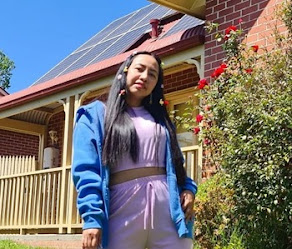
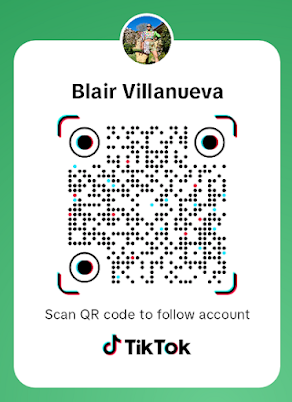















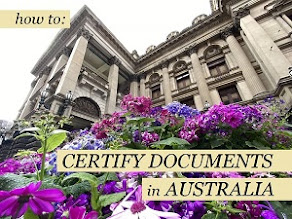
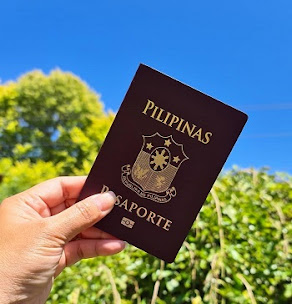
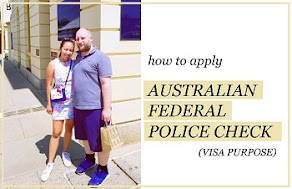


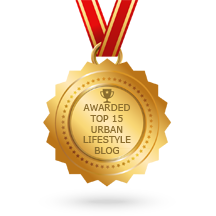
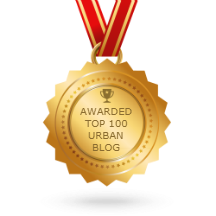
Thank you so much for spreading the word about this. Wildlife needs our help now more than ever.
ReplyDeleteMillions of wildlife died and it is devastating especially after last year's bushfire.
DeleteI love that you are helping wildlife and helping to spread the message of being advocates for wildlife. Your kitty helper looks like she's taking it seriously, too!
ReplyDeleteThank you Colleen!
DeleteUnfortunately my kitty doesn't like having another baby around. When we found this baby wallaby, we cared for it overnight and luckily found her a new home the next day. We named her Simba.
How sweet. I will look into doing this. I always love to help animals.
ReplyDeleteWonderful, and thank you!
DeleteI am so thankful for people like you who help wildlife and help other to take up the cause, as well. They need our help!
ReplyDeleteThank you Brianne! Every help counts.
DeleteOh my goodness I would love to rescue a Wallaby! What a super neat and fun experience. I've always wanted to help animals out!
ReplyDeleteWhen you visit Australia, you will definitely have your own wonderful encounter.
DeleteI didn't know any of this! It's so wonderful of you to help these animals!
ReplyDeleteThank you dear! You can also help too, by driving safely and watch for any wildlife animals crossing the road.
DeleteSuch a beautiful creature. Thanks for such a kind act of saving them. These acts of kindness make the world a lot better
ReplyDeleteAww God bless your kind heart for saving that injured animal! It’s so sad that they’re left behind after the accident. Good thing awareness campaigns like this is being spread to help spare the lives of our wildlife.
ReplyDeleteI agree. I can't believe that this is happening but sad to say that it is real. Either you save yourself from the road accident or you save another innocent life. Driving safely is important.
Deletei rememebered the wallaby nga! where is it na? is it still with you? thank goodness for the action that wildlife victoria made. nakakaawa naman talaga mga animals na nasaktan at napabayaan lang. bless your heart too sis!
ReplyDeleteShe is now happy with her new friends!
Deleteyou're so brave! i wouldn't be touching wild animals as i am scared of them more than they are scared of me! thankfully my partner is good with animals so should this situation arise, we can still help them
ReplyDeleteBabies are the most vulnerable, and they won't survive on their own even they are wild. Like this wallaby, it needs care until it hits 18months.
DeleteOh, aren't there signs meters ahead to slow down and watch out for animals at those hours? Kawawa naman ang animals. It's good that you are bringing awareness to it. Sana maraming makabasa!
ReplyDeleteThere are many road signs, however during at night time, hindi maiwasan na may masagasaan coz these animals are nocturnal, they are more active at night to hunt for their foods.
DeleteThat was really an unfortunate scenario. So glad there are kind hearted people like you whose there to take immediate action.
ReplyDeleteWe can always help in every ways.
Deleteoh my world ! thats so lovely of you - we have started donating money to wildlife rescues as we live in uk - kind regards Pati Robins at style squeeze blog
ReplyDeleteThank you Colin and Pati!
DeleteHindi pa ako nakaka kita in person ng wallaby. Kawawa naman buti nakita nyo though yun nga baka hindi aware ung naka hit na car sakanya.
ReplyDeleteYes, sometimes drivers also are not aware, and you can check it only if you feel safe first, especially at night.
DeleteI hope drivers will continue on taking extra care on the roads even after the holidays. Will also share this post to raise awareness :)
ReplyDeleteThank you Nicole! At least there is almost zero case of humans being hit naman.
Deleteaw that so cute and lucky joey. So nice to know that there are organizations exist to care for our wild animals. Keep it up!
ReplyDeleteI agree. Wildlife Victoria is truly good in their job.
DeleteAwesome post with great reminders! All over the world, all of us can help save wildlife and the life of others just by being a safe driver!
ReplyDeleteI agree, and thanks for visiting!
DeleteIt's wonderful that you were able to rescue these helpless animals and there is a program to help.
ReplyDeleteAustralia is committed to protect their wildlife, and continuously reminding us many travelers and locals to always be safe while on the road.
DeleteGod bless you for rescuing these animals. As drivers, we should really be extra careful when driving even late at night. These animals live in the same earth we do so we should respect and protect them as wel
ReplyDeleteThank you Christian!
DeleteWildlife animals are mostly nocturnal and they can't protect themselves from any harms on the road.
Thank you for what you do. My God bless you and your husband for saving this baby wallaby. Sharing your post to help remind drivers to take extra care on the roads. Praying for the safety of all these animals.
ReplyDeleteOur simple actions can help millions of innocent wildlife.
Deletewhat you guys are doing is so noble. I hope to volunteer when i visit your country.
ReplyDeleteOh many wildlife sanctuaries need volunteers!
DeleteI hope people all over the world will be extra careful on the road especially when there are wild animals roaming around. Thank you for saving the little wallaby and I hope many would do the same just like to you did so we can still save lives and protect the wild life.
ReplyDeleteThank you for visiting, and hope we encourage many drivers to be careful and safe.
DeleteWhat a meaningful thing to do on the holidays! We should all try to protect the wild life!
ReplyDeleteThanks Lorita!
DeleteThis is a good gesture and create good examples for many. Such a good influence to spread helping our wild life
ReplyDeleteThank you, Rhea!
DeleteThis is a super helpful post, in times of human crisis we sometimes forget the helpless animals that need us to protect them and be cautious when driving. Especially h Also, the way your cat is looking is super cute :-)
ReplyDeleteThank you Henri!
DeleteI admit that my cat never liked the baby wallaby. We found a new place for her the following day.